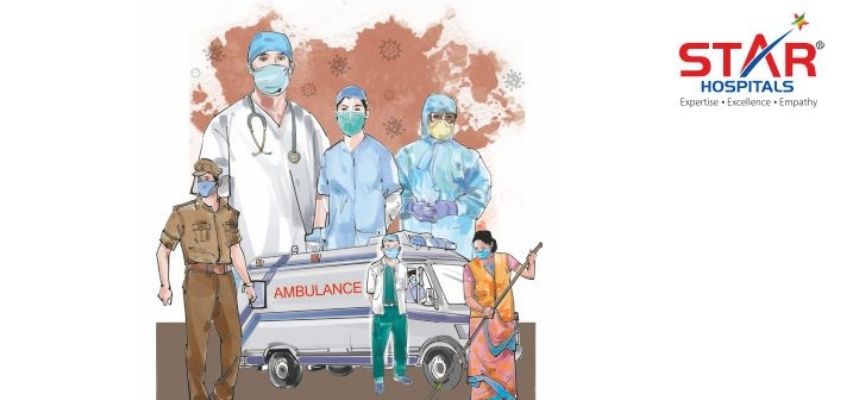PARKINSONS DISEASE April 11th

Dr. Nishanth Reddy K Consultant Neurologist, KIMS Hospitals, Kurnool.
Parkinson's disease is a brain disorder that leads to shaking, stiffness, and difficulty with walking, balance, and coordination.
Parkinson's symptoms usually begin gradually and get worse over time. As the disease progresses, people may have difficulty walking and talking. They may also have mental and behavioural changes, sleep problems, depression, memory difficulties, and fatigue.
Both men and women can have Parkinson’s disease. However, the disease affects about 50 percent more men than women.
One clear risk factor for Parkinson's is age. Early-onset forms of Parkinson's are often, but not always, inherited, and some forms have been linked to specific gene mutations.
Physiology
Parkinson's disease occurs when nerve cells, or neurons, in an area of the brain that controls movement become impaired and/or die. Normally, these neurons produce an important brain chemical known as dopamine.
Many researchers now believe that Parkinson's disease results from a combination of genetic factors and environmental factors such as exposure to toxins.
Symptoms
Parkinson's disease has four main symptoms:
Tremor (trembling) in hands, arms, legs, jaw, or head
Stiffness of the limbs and trunk
Slowness of movement
Impaired balance and coordination, sometimes leading to falls
Other symptoms may include depression and other emotional changes; difficulty swallowing, chewing, and speaking; urinary problems or constipation; skin problems; and sleep disruptions.
Diagnosis
There are currently no blood or laboratory tests to diagnose nongenetic cases of Parkinson's disease. Diagnosis is based on a person's medical history and a neurological examination. Improvement after initiating medication is another important hallmark of Parkinson's disease.
Treatment
Although there is no cure for Parkinson's disease, medicines, surgical treatment, and other therapies can often relieve some symptoms.
The main therapy for Parkinson's is levodopa, also called L-dopa.
People with Parkinson's should never stop taking levodopa without telling their doctor. Suddenly stopping the drug may have serious side effects, such as being unable to move or having difficulty breathing.
For people with Parkinson’s who do not respond well to medications, deep brain stimulation, or DBS, may be appropriate. DBS is a surgical procedure that surgically implants electrodes into part of the brain and connects them to a small electrical device implanted in the chest.
Other Therapies include physical, occupational, and speech therapies, which help with gait and voice disorders, tremors and rigidity, and decline in mental functions. Other supportive therapies include a healthy diet and exercises to strengthen muscles and improve balance.

 Disclaimer: Welthi.com does not guarantee any specific results as a result of the procedures mentioned here, and the results may vary from person to person.
Disclaimer: Welthi.com does not guarantee any specific results as a result of the procedures mentioned here, and the results may vary from person to person.









